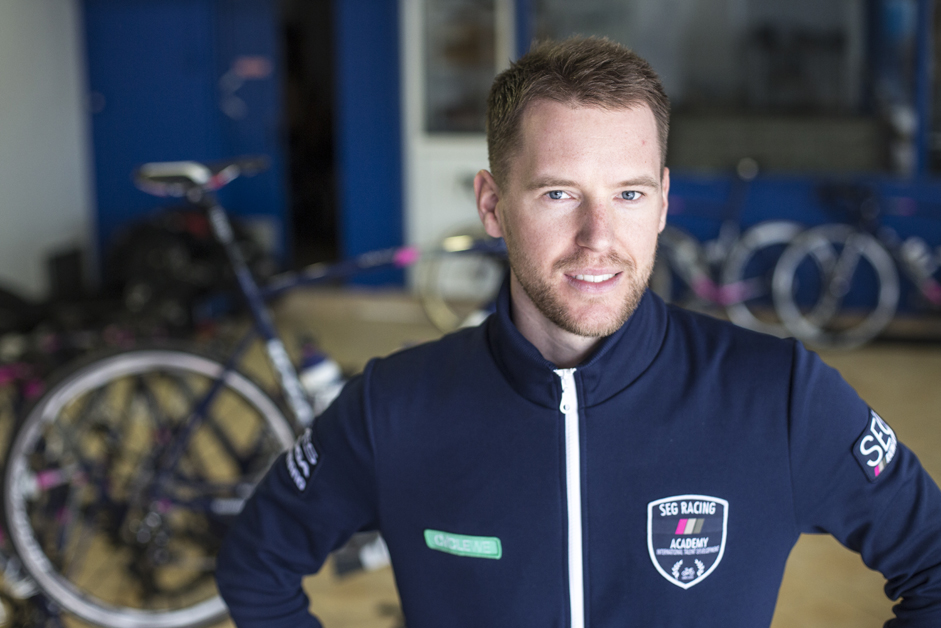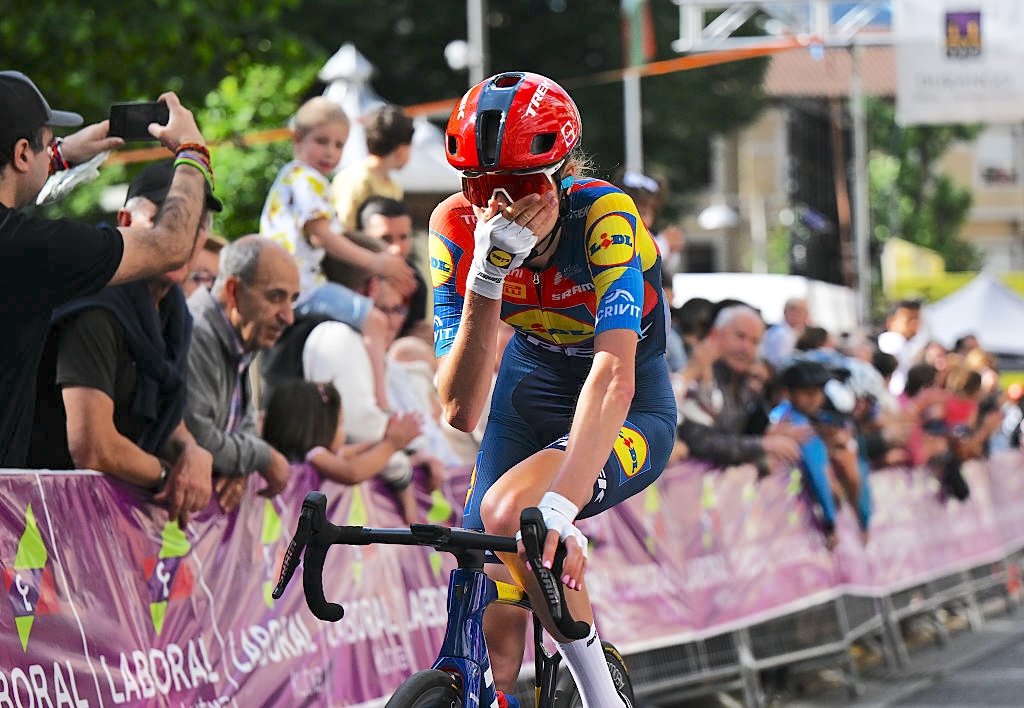Martijn Berkhout blog: Cycling moved backwards in 2016
SEG Cycling co-owner takes a look at the creaking business model of professional cycling

Knowing we are almost in 2017, it means the nicest and most relaxed part of the year for professional cyclists and teams is coming to an end.
November and December are traditionally the months where (almost) everyone is feeling happy in cycling. The previous season seems far behind us, contracts are signed, vacations booked, training camps still feel nice and the new season is almost lighting up. It means a new and fresh start, with new goals, and the struggles and disappointments from months ago are forgotten.
I like this period, but it also makes me realise how fleeting this whole emotion business is. Because I already know that after the Tour Down Under the first stress situations will start again. Fresh motivation will make way for pressure and high expectations (in the short term). However, I really look forward to helping our clients fulfill their own expectations and goals for 2017.
But there is more then that in this period. At the end of every season you can find interesting discussions, podcasts and articles about this sport moving forward in the right way – yes or no. It seems the discussion always comes up during the 'heat of the moment'.
Normally it goes like this: at the beginning of the season there are rumors of teams maybe stopping (or being forced to stop), then it actually happens to some and suddenly everyone is really worried. But while teams are still stressing about their roster for the coming year, it's not the time to make any strategic changes and the stress fades away. But at the end of the season, when budgets are finished, things look less positive than before on everyone's calculator – that's normally the time the issue becomes urgent again.
This year has been the same. Full pages have been written about possible new set-ups for professional cycling but, as is often the case, it goes no further then analysing issues between the UCI and ASO.
So what's the follow up? That's what interests me.
The latest race content, interviews, features, reviews and expert buying guides, direct to your inbox!
We've read Oleg Tinkov's statements on this site. At least he said something. Jonathan Vaughters tried to start a public discussion at the end of the season by writing an interesting blog on Cyclingnews on changes in professional cycling, but that’s where it stopped. He got no responses in public – not from his partners at Velon, not from the UCI, not from the ASO.
Maybe it all happened behind close doors but I'm pretty sure that's not the case. It went no further than JV discussing his opinion on Twitter. But this discussion should take place in public, with people who are involved taking a stance. That's the way to attract people from outside of cycling – people with good ideas and different networks. Make them part of the debate.
In my opinion, professional cycling, instead of moving forward, moved backwards this year. And I'm not just talking about the loss of Tinkoff and IAM Cycling.
The Chinese/Italian project TJ Sport was presented as the new big project but we know how that ended. It sounded promising – a big Chinese investment group buying a WorldTour cycling team.
Grande presentation, it all seemed ok. But I was already worried about the outcome from the first time TJ Sport was mentioned. Knowing the situation, for example, with football club AC Milan (a possible take over by a Chinese investment company didn't work out), but even more because of a situation in the Netherlands with football club ADO Den Haag. I was able to follow that closely. Chinese investment group United Vansen International bought ADO Den Haag, a mid-table club, as a first step for a possible expansion in European football. But from day one it didn't work, with cultural difference the main issue.
A contract in China does not have the same importance as one in Europe. A business trip SEG Cycling made to China earlier this year made me understand there are fantastic opportunities for cycling and especially professional cycling within China. Let's not focus on bringing Chinese money into professional cycling; let's bring professional cycling and all the knowledge within it, to China.
Cycling can profit from all the investments which are currently being made in China to become a football giant. Football is the main focus but they are ready to invest in other sports as well. That's why, from a business perspective, it's great news that there is once again a Chinese WorldTour race on the calendar next year. As a rider agent, I experienced how they desperately search for ambassadors in China to spread the word of professional cycling. Daniel Martin was one of the most successful riders during all of the editions of the Tour of Beijing. In the end that resulted in a live performance on National TV in China (which is huge), a column in the most important cycling magazine of the country, and interest from corporate Chinese companies.
With the partnership between Saronni and TJ Sports falling apart, we can be happy the Middle East is investing in cycling, but for how long? With the cancellation of the Tour of Qatar, it seems Qatar is loosing interest. Hopefully that's not the case for Bahrain or Abu Dhabi.
The difference with partnering up with the Far East instead of the Middle East is the background of interest. What is their intention for the long term? We are talking about 'classic' cycling projects, with sponsors linking up to riders or a manager with a big CV. If cycling wants to attract new money we need to make sure possible sponsors and investors see direct return on their investment. That can never depend on one or two riders. That model of sponsoring will not last.
But it's also about the way we present professional cycling as product.
This sport is famous for the continuous search for marginal gains, endless training camps and data analysis. Performance-wise there is still a lot to gain but compared to other sports cycling is in a good position.
But how can you explain to fans, outsiders, investors, media and other communities that you can't ride your new team bike during the training camp of your new team because you are still under contract with your current team?
Peter Sagan is lucky Specialized changed with him from Tinkoff to Bora-Hansgrohe, but one of his rivals, Sep Vanmarcke, can ride his Cannondale only from the January 1. And in cycling a bike is essential, right? Let's not even start about the rest of the equipment and, specifically, the clothing.
I know that even in football they struggle with these kind of contractual issues but at least they don't have a training pitch with mixed jerseys. Imagine Zinedine Zidane leading a Real Madrid training session with three or four new players still wearing Chelsea, PSG or Juventus kits. Or Max Verstappen signing for Mercedes but having to train in his Red Bull car during a Mercedes testing day. It sounds crazy, but that's cycling right now.
And the fun part is, there are no regulations on this. It's all emotion-based. If a rider needs to leave a team, 99 per cent of the time he gets permission from his current team to ride with his new gear on training camp. But if a rider chooses to leave a team, his current team obliges him to use the team gear until December 31. Most of the time they even threaten riders with fines or not paying out December wages if they are seen riding another bike.
I've seen this so many times and every time it surprises me. It doesn't help the team or the rider – not even the cycling industry. And that's the main stakeholder in professional cycling. November and December are months in professional cycling where the cycling industry can't move, while they have a 12-month-a-year business to run. They have to wait for new jerseys, for new riders and for new photos. And, as we know, time is money.
What do I want to say with this? Let's have a critical look at the start and end dates of rider contracts. The cycling season has changed, the interests are different nowadays. The product of professional cycling needs to be clear.
We can easily solve the problem to let the contracts run from the November 1 until October 31 the following year. That would solve a lot of problems. Suddenly the end of the year becomes interesting again for sponsors. Teams can start a new season directly at the start of November, plus a team which decides – or needs – to stop will not have to sit out until Christmas and see money thrown away. It means 100 per cent sponsorship instead of 80 per cent. Even for organizers it can create new opportunities on the calendar. To talk cyclists' language, it's like with oval-rings; you take out the dead spot of the movement and make the entire movement more efficient.
Of course, there are much more important issues to solve for professional cycling and its future. But this, in my opinion, is an essential step in the business model which is not too difficult to take. Therefore, I'd like to call on the UCI, the AIGCP and the CPA to discuss this openly. Make it a public discussion – then we can all take part.
For now, all the best for 2017.
Together with his brother Martijn Berkhout is owner of the management company SEG Cycling, which also owns and runs the SEG Racing Academy and is co-founder of the new cycling community JOIN.
Together with his brother, Martijn Berkhout is owner of the management company SEG Cycling, which also owns and runs the SEG Racing Academy and is co-founder of the new cycling community JOIN.
